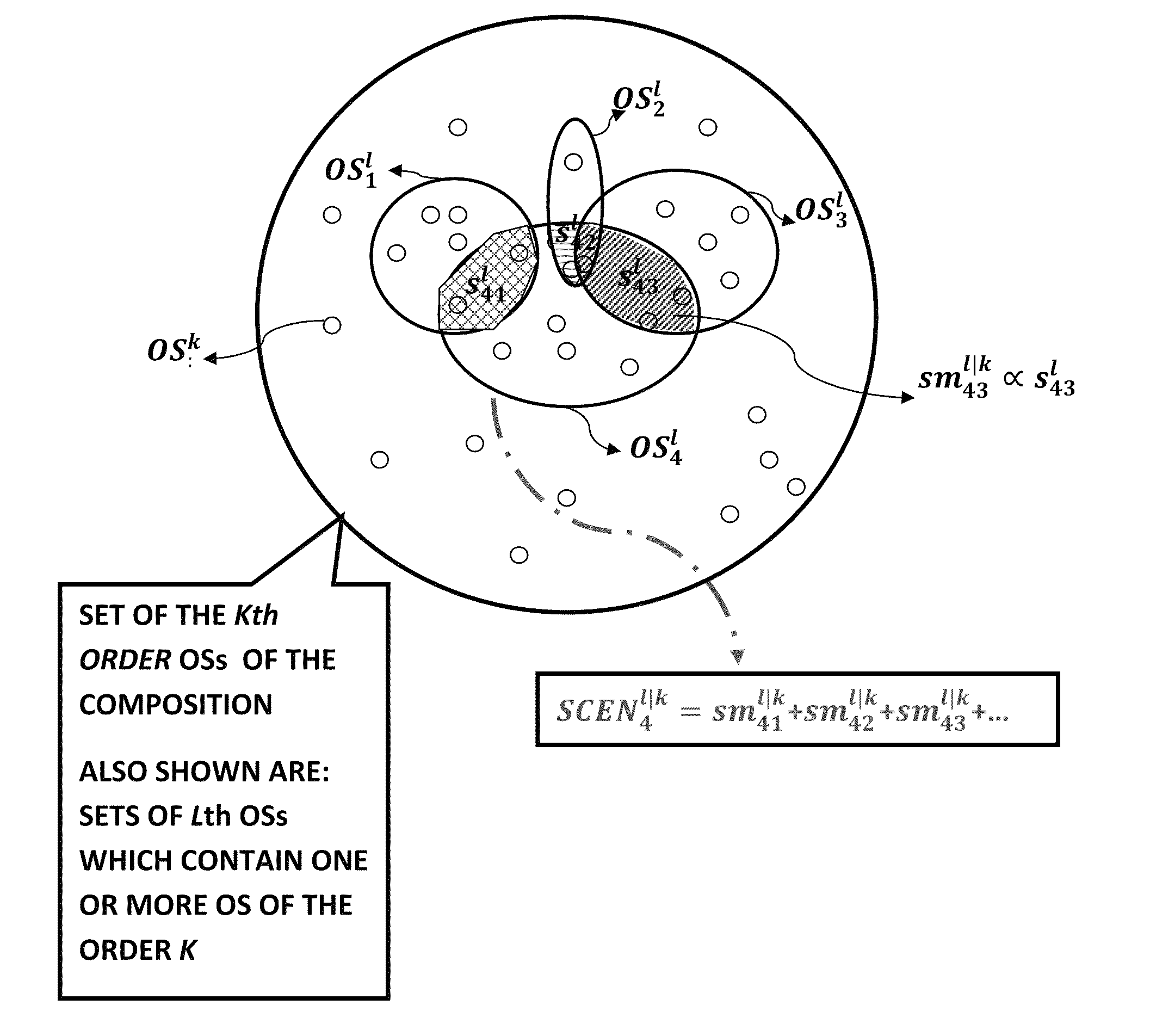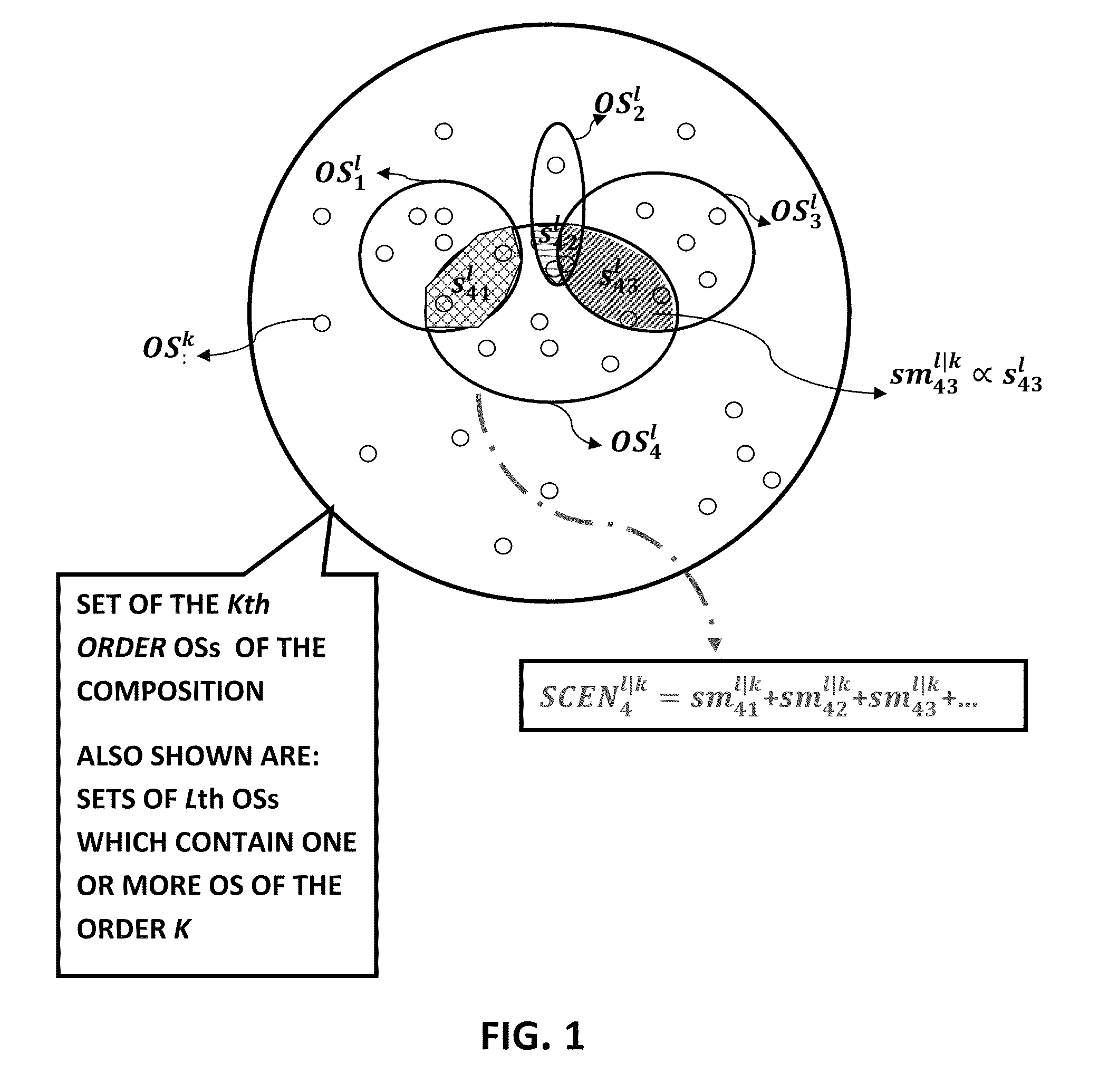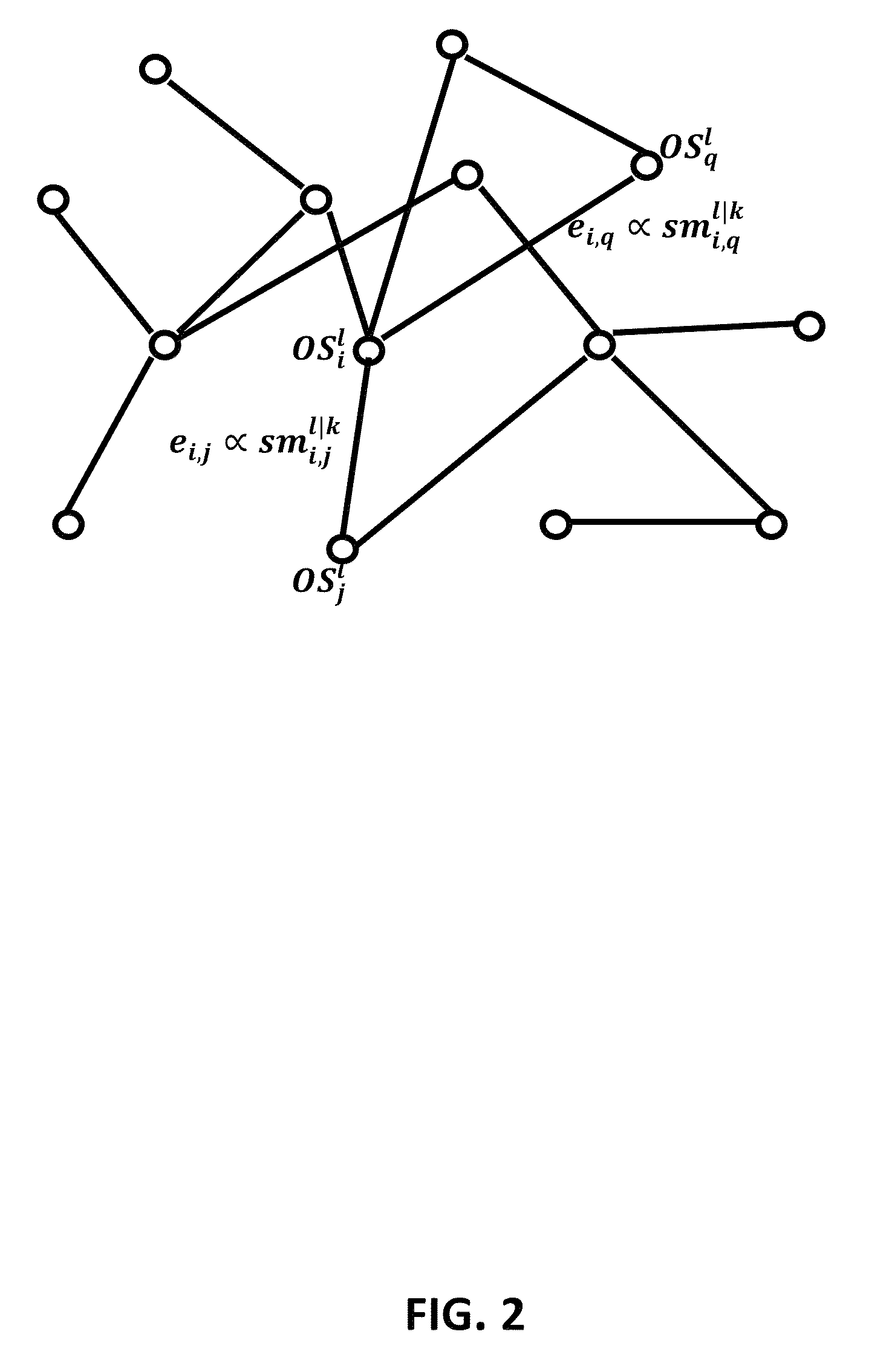System and method for a unified semantic ranking of compositions of ontological subjects and the applications thereof
a semantic ranking and composition technology, applied in the field of information processing, ontological subject processing, knowledge retrieval, ontology organization and applications, can solve the problems of large amount of text processing that is very process intensive, method manipulation is susceptible to manipulation, and the effect of reducing processing complexity, time, energy and cos
- Summary
- Abstract
- Description
- Claims
- Application Information
AI Technical Summary
Benefits of technology
Problems solved by technology
Method used
Image
Examples
Embodiment Construction
[0037]The description starts by defining the terms that are used frequently throughout the disclosure and are helpful to grasp the scope, methods, and the systems disclosed here. The description then is given in several sections followed after the definitions section.
I—Definitions:
[0038]1. Ontological Subject: symbol or signal referring to a thing worthy of knowing about. Therefore Ontological Subject means generally any string of characters, but more specifically letters, numbers, words, bits, mathematical functions, sound signal tracks, video signal tracks, electrical signals, chemical molecules such as DNAs and their parts, or any combinations of them, and more specifically all such string combinations that indicates or refer to an entity, concept, quantity, and the incidences of such entities, concepts, and quantities. In this disclosure Ontological Subject / s and the abbreviation OS or OSs are used interchangeably.[0039]Moreover, Ontological Subjects can be divided into sets wit...
PUM
 Login to View More
Login to View More Abstract
Description
Claims
Application Information
 Login to View More
Login to View More - R&D
- Intellectual Property
- Life Sciences
- Materials
- Tech Scout
- Unparalleled Data Quality
- Higher Quality Content
- 60% Fewer Hallucinations
Browse by: Latest US Patents, China's latest patents, Technical Efficacy Thesaurus, Application Domain, Technology Topic, Popular Technical Reports.
© 2025 PatSnap. All rights reserved.Legal|Privacy policy|Modern Slavery Act Transparency Statement|Sitemap|About US| Contact US: help@patsnap.com



